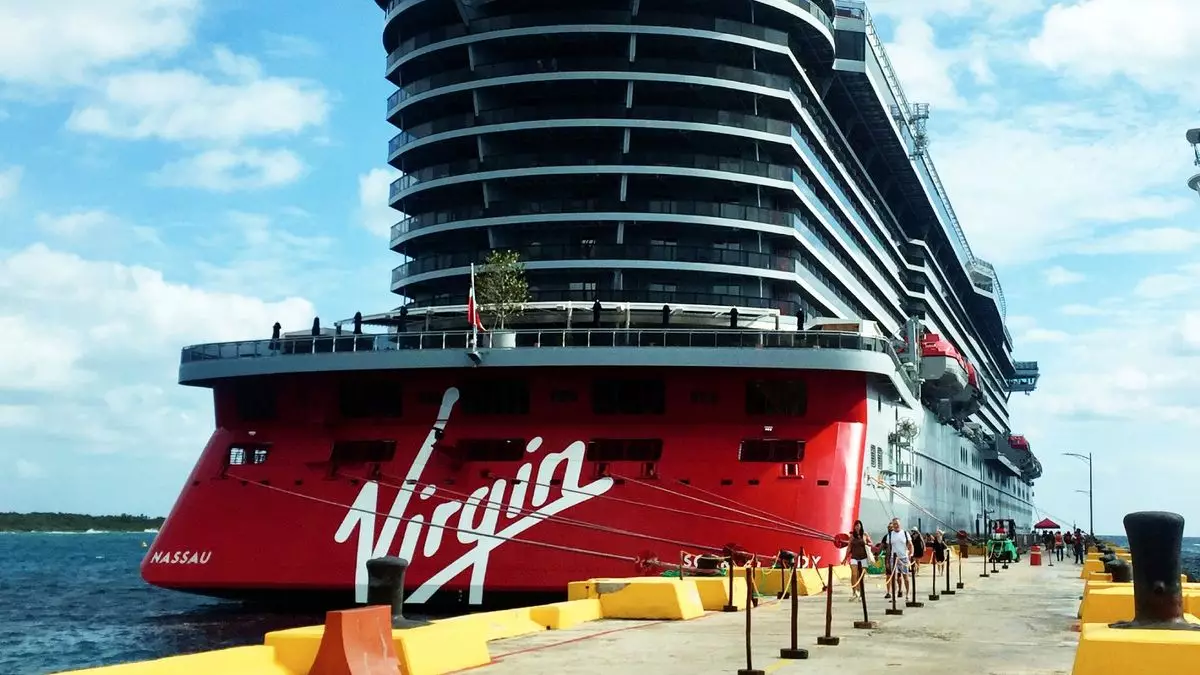The recent decision by Mexico’s lower house of Congress to impose a $42 immigration levy on each cruise passenger has sent shockwaves through the cruise industry. This newly proposed tax, which aims to funnel two-thirds of its proceeds directly to the Mexican military, deviates significantly from the historical treatment of cruise passengers in the country. Traditionally, these travelers have been exempted from such fees due to the nature of their travel—many remain on board their ships during port visits, contributing little to local economies. By reversing this exemption, Mexico is raising critical questions about the future viability of its cruise ports, particularly in an increasingly competitive Caribbean market.
The Mexican Association of Shipping Agents has voiced strong opposition to the proposed fee, arguing it could render Mexican ports prohibitively expensive for cruise lines. Their statement expressed concerns that, if enacted, this levy would position Mexican destinations as some of the priciest in the world for cruise operations. Such financial considerations are paramount in an industry already burdened by fluctuating fuel costs and growing operational expenses. The cruise industry thrives on the principles of competitive pricing and attractive offerings; thus, any additional financial burden could lead many cruise lines to reconsider their stopovers in Mexico, favoring destinations with more favorable economic conditions.
The implications of this new levy extend beyond the economics of cruise lines. Mexico’s Caribbean coast, specifically Cozumel, has long been a cornerstone of global cruise travel, welcoming approximately 4 million visitors annually. The potential decline in cruise ship arrivals could have a cascading effect on local economies reliant on tourism revenue. Vendors, tour operators, and hospitality businesses that flourish on the influx of cruise passengers may face significant financial distress if cruise lines opt to skip Mexican ports.
Meanwhile, concerns regarding overtourism have prompted discussions worldwide about the sustainability of the cruise industry. Various destinations have implemented measures to limit the scale of cruise activities, yet Mexico appears to be taking a contradictory approach. By imposing new taxes on cruise passengers, the government risks alienating one of its most lucrative sources of tourism revenue rather than cultivating a more sustainable framework for its local economies.
In light of these developments, industry representatives are urging the Senate to reject this ocean of change in fiscal policy. The ambiguity surrounding the rationale for allocating such a substantial portion of this tax to the military raises further questions. Critics argue that funds should be directed toward enhancing port facilities and supporting essential infrastructure to accommodate the needs of both cruise lines and tourists. The potential to improve experiences for travelers, coupled with a focus on making Mexican ports more attractive, could yield far greater economic benefits than channeling funds to military expenditures.
Ultimately, as this measure progresses through the legislative process, stakeholders in the cruise industry and local tourism must unite to advocate for a balanced approach—one that supports national security without jeopardizing the vibrancy of Mexico’s cruise tourism sector and the livelihoods it sustains. With the eyes of the world upon it, Mexico must navigate these treacherous waters carefully to ensure a sustainable future for its booming cruise industry.


Leave a Reply